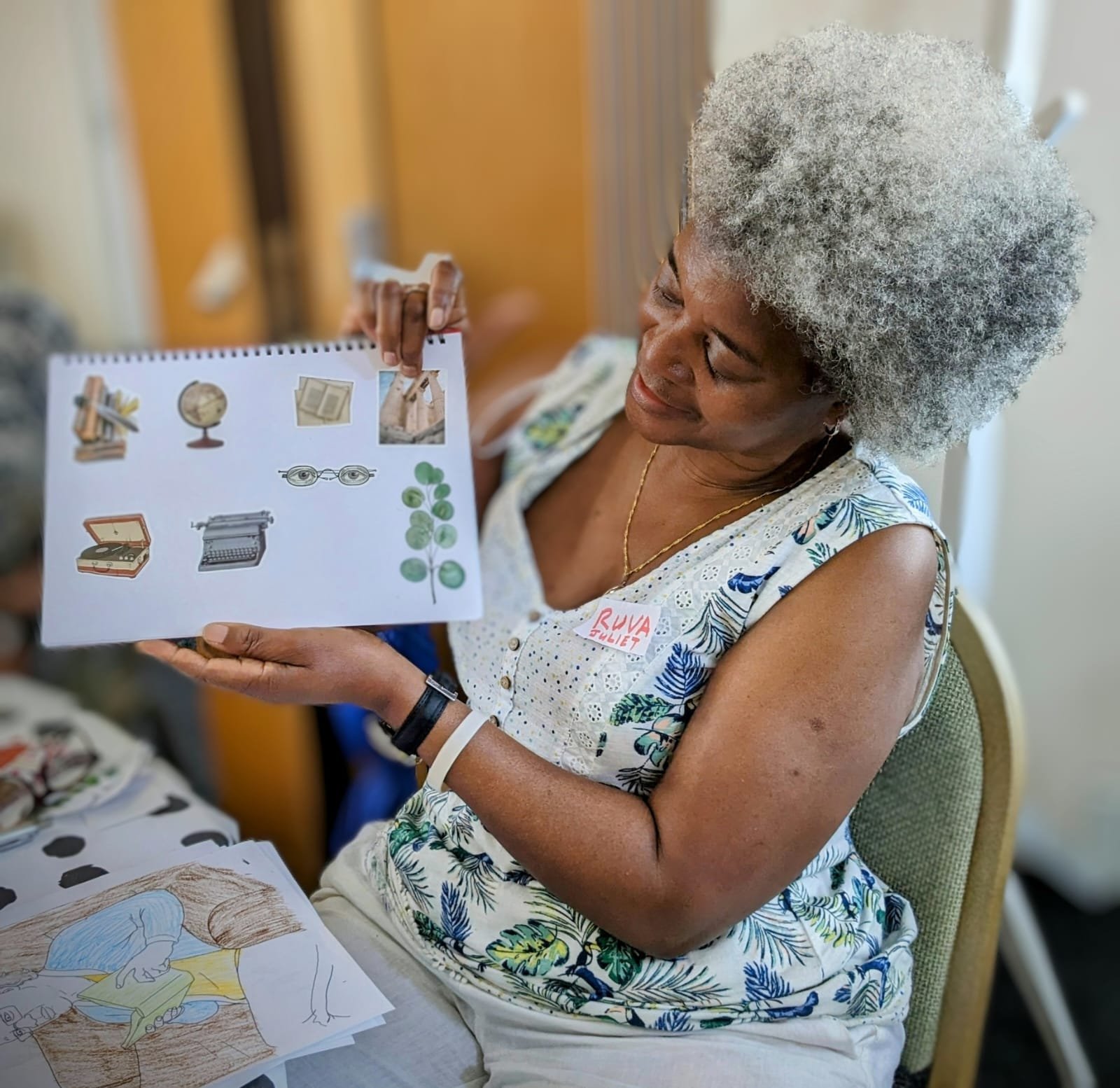Dementia Disruption Project 2023: Cultural Appropriate Resources
Sheffield’s ‘Memory Hub’ Team
People of African and African Caribbean descent in the UK are 22% more likely to develop dementia than their white friends and neighbours, and post diagnosis we are living for shorter periods and dying at a younger ages?
The Trust’s Award, has contributed towards Cultural Appropriate Resources (CAR's) in partnership with SACMHA (Sheffield African Caribbean Mental Health and Well Being Association) being able to pursue several strategies as attempts to address the consequences of the racial disparities that exists within the field of dementia.
Creation of Sheffield’s ‘Memory Hub’ a supportive forum where African and African Caribbean people living with 'forgetfulness' and dementia engage in stimulating 'Brain Fit' cognitive activities.
Increasing access to cultural appropriate resources for those diagnosed with dementia, their care partners, families and care workers?
Support, guidance and advice for care partners.
Cultural Reminiscing Sessions, restoring the member living with dementia, back onto the pedestal of 'story teller' - the one listened to, as they share knowledge and experience to all those around them.
Introducing a 'Healthy Heart is a Healthy Brain', range of culturally-related group and individual fun physical activities.
Initiate collaboration with local GP Practices in exploring new methods to increase timely and effective early diagnosis.
Supporting research initiatives serving to improve awareness, service delivery, and support for those living with dementia within marginalised communities.
Development of the innovative culturally responsive and inclusive dementia resource/intervention, the 'Windrush Virtual 3D Museum Tour'. Developed in collaboration with Mansfield Museum and accessible by all from mid - November.
‘Dementia does not discriminate’
However, 100 years plus from the pioneering research of Dr Solomon Carter, contemporary research highlights racial disparities.
It is imperative that collaboratively we focus on how services provided, can be more inclusive and responsive by focusing on CAR's 6A's and the ways of making service increasingly;
Accessible
Acceptable
Adaptable
Appropriate
Affordable
Accommodating
Article written by Carl Case, Founder of Cultural Appropriate Resources
Biography
Carl's work focuses on empowering individuals, families and professionals facing the challenges of dementia, through support, training, accompanied with the development, sharing and delivery of innovative cultural responsive interventions and resources.



